285 jobs that need filling: Bosses call for more migrants to solve South Australian skills crisis
These are the industries desperate for thousands of employees as SA businesses buckle under staff shortages and the national skills crisis deepens.
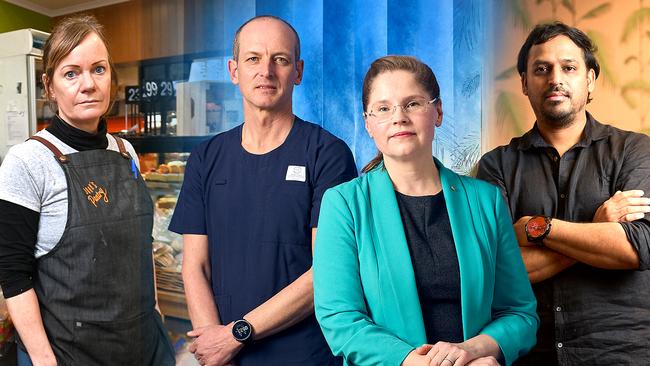
SA News
Don't miss out on the headlines from SA News. Followed categories will be added to My News.
Staff shortages have hit critical levels across almost 300 roles in South Australia with businesses buckling under pressure.
A wide range of hospitality, nursing, building and automotive industry jobs are listed among the 285 most in trouble by the National Skills Commission.
The shortfall has pushed businesses to resort to new measures to find workers, according to a recent Business SA survey.
Its chief executive, Andrew Kay, said almost half (42.3 per cent) had considered finding overseas workers, and 25.5 per cent would seek international graduates.
More than half (57.7 per cent) had decided to seek workers where they normally wouldn’t – older workers, or workers with a disability.
“South Australia’s labour shortage continues to be an ongoing challenge for businesses, with 54.9 per cent of respondents reporting labour shortages in the March quarter,’’ Mr Kay said.
“An overwhelming majority of businesses reported a lack of suitably skilled workers as the main reason for the difficulty in sourcing labour.”
SCROLL DOWN TO SEARCH THE FULL 285 JOBS
Training and Skills Minister Blair Boyer said additional funds in the State Budget would help ease the problem.
“We are also partnering with industry and the state’s education institutions – including schools, training providers and universities – to ensure South Australians are well-equipped to take up the skilled roles in the growing defence industry, emerging hydrogen and renewables sector,’’ he said.
The state’s interim Skills Commissioner Sara Longbottom said finding people for regional areas was a particular problem.
“Difficulty in attracting skilled migrants to regional, rural and remote areas is exacerbated by a shortage of accommodation and facilities in the regions,’’ she said.
“There are persistent shortages across some industry sectors, including creative industries, agribusiness, tourism and hospitality, health and care sectors, construction, mining and energy, and transport.”
Regional Development SA chair Rob Kerin said the outlook was bleak and complicated in the regions.
He said poor infrastructure and the traditional “tyranny of distance” was making things worse than in the city, and across all industries.
“It is very hard to get people and one of the main reasons is the lack of accommodation,’’ Mr Kerin said.
“In some places there is no housing available and in others not appropriate housing.
“Take Bordertown, where you can build a house but there is not enough water because the supply is at capacity. Streaky Bay is the same. Their water line is at full capacity.
“Then there are people who are willing to work but there is no real childcare out in the regions.
“There are mums who would love to be working but they are stuck at home looking after the kids.
“Some businesses are down to partially operating because they can’t get people to do the jobs,’’ he said.
AUTOMOTIVE
Motor Trade Association chief executive Darrell Jacobs said with a 2050-worker shortfall, more skilled migrants were needed.
“Skills shortages are the first, second and third largest challenge facing the automotive industry,’’ he said.
The MTA supports 1300 automotive companies and Mr Jacobs said around half of businesses had a labour shortage with the transition to electric vehicles under threat without more people qualified to repair them.
“In response to persisting skill shortages, we have refined our training model so that apprentices spend more time in a business,’’ he said.
“Businesses need support to access skilled migration more easily.”
SA’s largest family-owned mechanic workshop Rowell and Searle Auto only recently became fully staffed for the first time in three years.
“It is not cut and dried, there is a short-term and long-term solution. First of all we must have more apprentices brought on and we need more than 2000 people in the automotive industries alone in South Australia, with 30,000 needed in Australia,” owner Peter Stewart said.
“One immediate solution is overseas workers, but it costs $27,000 to get someone here and then we have to find housing.
“It isn’t just off the plane and then ‘come in to work tomorrow’, so then there is a housing and rent shortage which is a huge problem.
“It is all interconnected and a problem across all industries.”
BUILDING
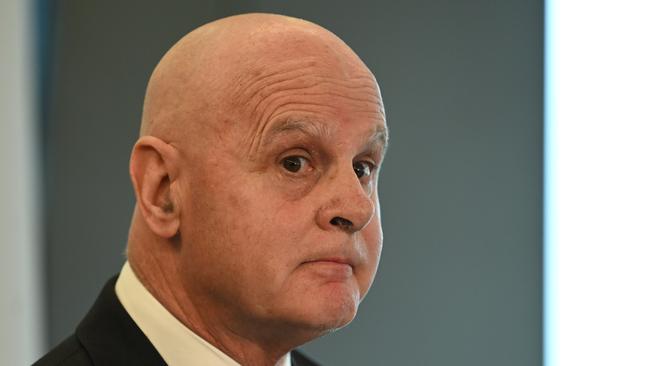
Housing Industry Association executive director Stephen Knight said SA had just been voted the most supportive state in the nation for creating building opportunities but was struggling to keep up the workforce supply.
He said the state must turn to overseas workforces to fill 30,000 jobs over the next two years, and keep up with estimated demand of 2500 homes each year.
“If we keep up with the population increase we are expecting then there will be a chronic shortage of housing,” he said.
“If we keep going at 1.1 per cent then over the next ten years we will have 50,000 more people than we would expect to have which is 25,000 houses.”
HEALTH CARE
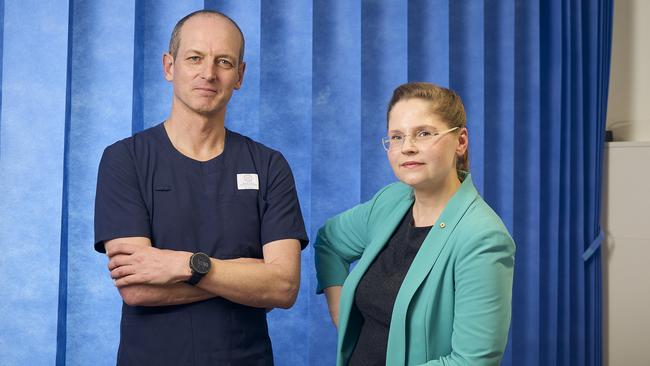
Australian Nursing and Midwifery Federation SA Branch secretary Associate Professor Elizabeth Dabars said the shortage of nurses was “drastic” and nurse practitioners “dire”.
She said governments must; address incentives for regional work, support and encouraging the existing workforce, help the return to work of non-working nurses and midwives and secure the future workforce.
“It is estimated that by the year 2025 South Australia alone will be short by 10,000 to 15,000 nurses and midwives,” Ms Dabars said.
Stuart Smith has been a registered Nurse for 31 years and an Emergency Nurse Practitioner for 25 of those.
He said SA was part of a global problem the profession had with recruiting and training staff.
“For me there are no simple solutions,’’ he said.
“Free university nurse education may help, in return for a period of time working in the public health system.”
He lists as priorities; better international recruitment, valuing healthcare workers, and a more up-to-date public perception of the skills needed in the profession.
“Nurses are perceived as ‘caring heroes’ rather than exceptionally skilled, highly educated and crucial members of the healthcare workforce,” he said.
“We need 17 year olds to see nursing as a worthwhile, individual profession, not a second rate alternative to medicine or another allied healthcare profession.”
Mr Smith said at the highest level of training, the Nurse Practitioner, could become part of the solution to the healthcare workforce crises.
“We need 20,000 Nurse Practitioners, not the current 2500 which we currently have,’’ he said.
“There needs to be a system that encourages nurses to become Nurse Practitioners.
“I would currently argue that many nurses who become Nurse Practitioners do so despite the system, not because of the system.”
HOSPITALITY
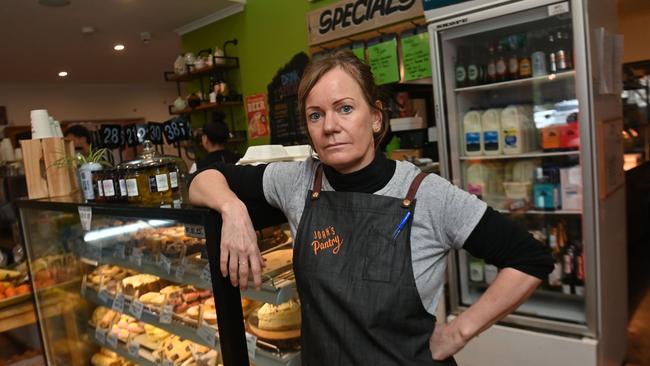
Lisa Down, who has run cafe Joan’s Pantry in Hawthorndene for 10 years, is still feeling the aftermath of the Covid pandemic.
Ms Down currently employs 26 staff, most casual, to have a maximum workforce at any one time of 12 people.
She said the need for more secure permanent employment was one of the struggles for the hospitality industry from Covid-19.
“We are in the foothills and there are a lot more options in the city,” Ms Down said.
“After Covid has been hard I think and hospitality has realised how vulnerable it is. If you have family and living pay to pay you have to make sure you have secure income coming in.
“We really looked after our staff during Covid like giving shifts when we didn’t have to because of Jobkeeper, but we wanted to keep them all.
“We lost a chef to bank work for example for security reasons.
“It can be hard with the sort of hours people work in our industry.
“A lot of the people in the industry were international students or travellers who all went home during Covid.
“We were just down to the Aussies for a while. And we ended up working on training and getting skills up for our younger staff which I think is good.”
Owner of the Waymouth St Union Hotel Miraj Desai said he also owns restaurants and skilled workers were in high demand.
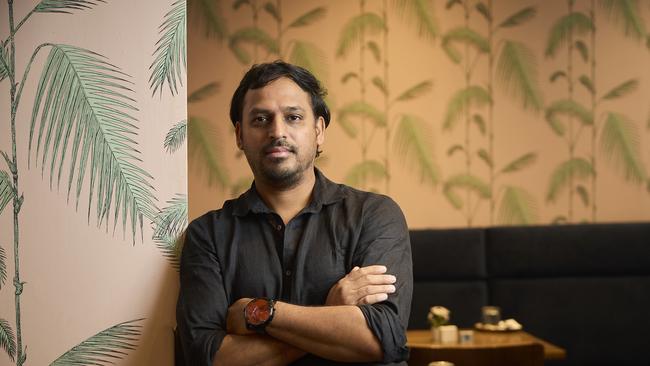
“It is difficult. Being in the city we get a lot of resumes and inquiries but they are all students and do not have any experience,’’ he said.
“We have been looking for a sous-chef for a long long time and they are very hard to find.
“People with skills want to stay with the place they have (for security) and they don’t even want to move up by moving.
“Chefs in Adelaide are very very hard to find. And again there are a lot of people who have done the training but have no experience.”
COMMUNITY
South Australian Council for Social Service chief executive Ross Womersley said there were many areas in the NGO/community sector that were struggling for staff.
He said many areas in the sector were “highly rewarding” but not well paid.
“The problem we have is that as one area improves with increased salaries like aged care, people move around and with the increased salaries we have seen some evidence that people are moving out of disability care and into aged care work,’’ Ms Womersley said.
“It is even more challenging in the regions, with the housing shortage critical.
“Our social services are being stretched in demand and we are also not being able to get the staff into place.”




